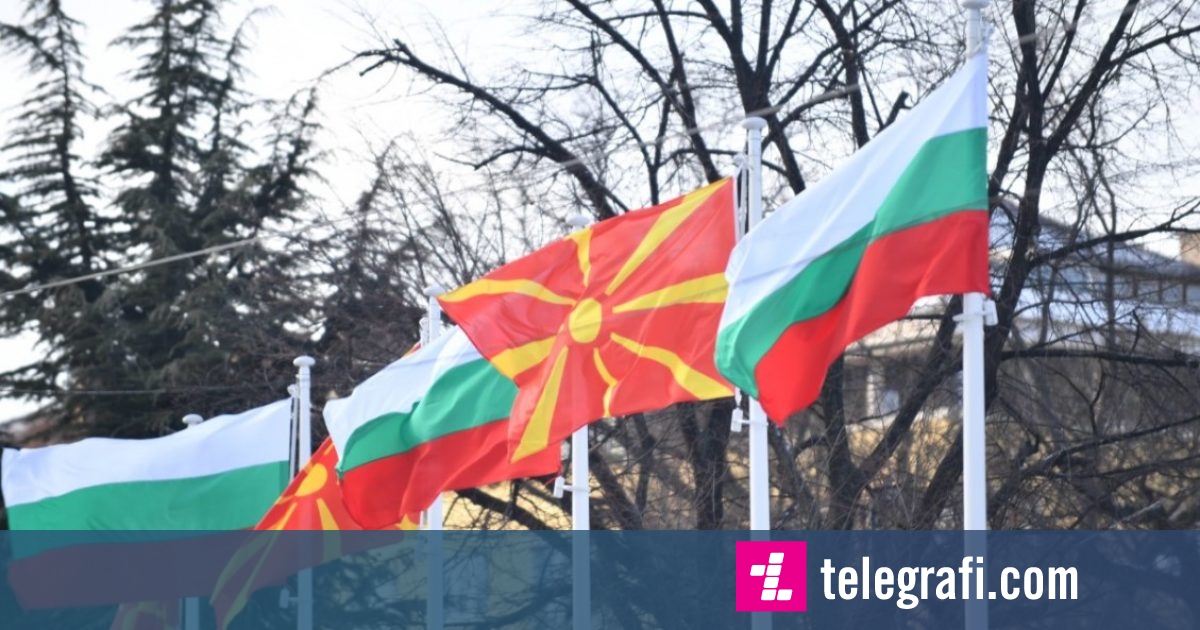The continuation of the Bulgarian veto, which prevents Northern Macedonia from starting negotiations with the European Union, will further weaken the will to carry out the reform process, which has been set as a task for the country by Brussels.
This is what Vasko Naumovski, former Deputy Prime Minister for Integration, told Radio Free Europe, adding that the chances are very low that the veto will be lifted until the EU summit on June 23.
Expectations remain even lower as the Bulgarian party "There is such a People", led by Slavi Trifonov, announced on Wednesday that it was leaving the ruling coalition, withdrawing the party's three ministers, including the Bulgarian Foreign Minister. , Teodora Gençovska.
Slavi Trifonov, explaining the reasons for the abandonment of the Government headed by the Bulgarian Prime Minister, Kiril Petkov, said that in addition to disagreements over the review of the Bulgarian state budget, the departure is related to developments in northern Macedonia, namely the possibility of lifting the veto. side of Prime Minister Petkov.
With the departure of this party, the Prime Minister of Bulgaria, Kirill Petkov, loses the parliamentary majority.
But even against this, Petkov has said he will not allow Bulgaria to enter a spiral of new parliamentary elections.
Parliamentary elections were held in Bulgaria three times last year, as none of the winning parties was able to form a government.
Former Prime Minister Naumoski tells Radio Free Europe that all hopes remain on the commitment of senior US officials to unblock the integration process and especially the personal commitment of French President Emmanuel Macron and German Chancellor Olaf Scholz, who during will meet in Skopje and Sofia this weekend with the leaders of the two countries.
"We see that in recent weeks we have activity reinforced by the French leadership after the French presidential election, personal engagement of President Macron, engagement by senior representatives in the US administration, direct communication with President Radev, the prime ministers of both states, as well as a commitment reinforced by other European partners.
"Now we have the visit of the German Chancellor, Olaf Scholz, both in Skopje and in Sofia, with which I believe that an effort will be made to exhaust all possibilities to move forward", says Naumovski.
On the other hand, Mersel Bilalli, a lecturer in international relations at FON University in Skopje, says that postponing the talks until November remains the most credible option.
"The most plausible variant is that there is not enough time to find a solution as the current positions of official Sofia and Skopje are removed, regardless of the fact that the pressure is very strong from the international factor, so it remains November or December. a solution is found.
The second option remains the existence of an invisible agreement between the partners of the Bulgarian ruling coalition, namely the party 'There is such a people', which leaves the Government but supports the minority government.
So, to silently support the withdrawal of the veto, but not to take responsibility ", Bilalli says for Radio Free Europe.
Naumovski and Bilal estimate that the continued blocking of the European perspective through the Bulgarian veto will present a strong blow to the realization of the reform process.
"If we once again face a veto, it will be very difficult to maintain the motivation, both in the state bodies and in all relevant factors of the country for the Europeanization of all social processes, as this policy of conditioning which is already "Well known to us - so I'm talking about constitutional policies by the European Union - it clearly does not work," said Naumovski.
Mersel Billalli considers that the reforms remain haunted in the drawers of institutions as any delay makes their implementation remain in place.
"Negotiations with the European Union at the moment are just a farce, so only face to face because objectively the European Union has many internal problems and is not ready to talk effectively with other countries, including the Western Balkans.
"Despite this, we must make the reforms for ourselves and the moment the EU will remedy the situation, then we will be at an advantage as the negotiation process will move faster," Bilalli said.
Meanwhile, the Prime Minister of Northern Macedonia, Dimitar Kovacevski, says that the citizens of the country can not remain hostage to the expectations before every summit of the European Union.
He emphasizes that all the requests that were submitted as an obligation by Brussels have already been realized.
Bulgaria has blocked the integration process for northern Macedonia due to a dispute between the two countries over the language issue and its historical past.
